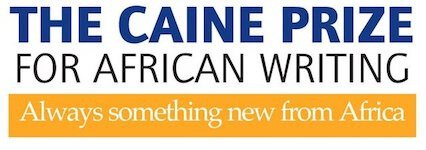Zambia’s Namwali Serpell has won the 2015 Caine Prize for African Writing, described as Africa’s leading literary award, for her short story entitled “The Sack” from Africa39 (Bloomsbury, London, 2014). The Chair of Judges, Zoë Wicomb, announced Namwali Serpell as the winner of the £10,000 prize at a dinner held this evening (Monday, 6 July) at the Bodleian Library in Oxford.
“The Sack” explores a world where dreams and reality are both claustrophobic and dark. The relationship between two men and an absent woman are explored though troubled interactions and power relationships which jar with the views held by the characters.
Zoë Wicomb praised the story, saying, “From a very strong shortlist we have picked an extraordinary story about the aftermath of revolution with its liberatory promises shattered. It makes demands on the reader and challenges conventions of the genre. It yields fresh meaning with every reading. Formally innovative, stylistically stunning, haunting and enigmatic in its effects. ‘The Sack’ is a truly luminous winner of the Caine Prize for African Writing.”
Namwali Serpell’s first published story, “Muzungu,” was selected for the Best American Short Stories 2009 and shortlisted for the 2010 Caine Prize for African Writing. In 2014, she was selected as one of the most promising African writers for the Africa 39 Anthology, a project of the Hay festival. Her writing has appeared in Tin House, The Believer, n+1, McSweeney’s (forthcoming), Bidoun, Callaloo, The San Francisco Chronicle, The L.A. Review of Books, and The Guardian. She is an associate professor in the University of California, Berkeley English department; her first book of literary criticism, Seven Modes of Uncertainty, was published in 2014.
Also shortlisted were:
- Segun Afolabi (Nigeria) for “The Folded Leaf” in Wasafiri (Wasafiri, London, 2014)
Caine Prize winner 2005 for “Monday Morning”
Read "The Folded Leaf" - Elnathan John (Nigeria) for “Flying” in Per Contra (Per Contra, International, 2014)
Shortlisted in 2013 for “Bayan Layi”
Read "Flying"
- F. T. Kola (South Africa) for “A Party for the Colonel” in One Story (One Story, inc. Brooklyn, New York City, 2014)
Read "A Party for the Colonel" - Masande Ntshanga (South Africa) for “Space” in Twenty in 20 (Times Media, South Africa, 2014)
Read "Space" - Namwali Serpell (Zambia) for “The Sack” in Africa39 (Bloomsbury, London, 2014)
Shortlisted in 2010 for “Muzungu”
Read "The Sack"
The panel of judges is chaired by South African writer and recipient of Yale’s 2013 Windham-Campbell Prize for fiction Zoë Wicomb. Zoë‘s works of fiction are You Can’t Get Lost in Cape Town, David’s Story, Playing in the Light, The One That Got Away and October. She currently lives in Scotland where she is Emeritus Professor in English Studies at Strathclyde University. Her critical work is on Postcolonial theory and South African writing and culture.
Alongside Zoë on the panel of judges are Neel Mukherjee, author of the award-winning debut novel, A Life Apart (2010) and the Man Booker Prize shortlisted The Lives of Others (2014); Brian Chikwava, author and former winner of the Caine Prize (2004); Zeinab Badawi, the prominent broadcaster and Chair of the Royal African Society; and Cóilín Parsons, Assistant Professor of English at Georgetown University who has written on Irish, South African and Indian literature.
Once again the winner of the Caine Prize will be given the opportunity to take up a month’s residence at Georgetown University, as a Writer-in-Residence at the Lannan Center for Poetics and Social Practice. Each shortlisted writer will also receive £500. The winner is invited to take part in the Open Book Festival in Cape Town, Storymoja in Nairobi and Ake Festival in Abeokuta, Nigeria.
Last year the Caine Prize was won by Kenyan writer Okwiri Oduor. She was a 2014 MacDowell Colony fellow and has been accepted on the Iowa Writing Programme and is currently at work on her debut novel.
Previous winners are Sudan’s Leila Aboulela (2000), Nigerian Helon Habila (2001), Kenyan Binyavanga Wainaina (2002), Kenyan Yvonne Owuor (2003), Zimbabwean Brian Chikwava (2004), Nigerian Segun Afolabi (2005), South African Mary Watson (2006), Ugandan Monica Arac de Nyeko (2007), South African Henrietta Rose-Innes (2008), Nigerian EC Osondu (2009), Sierra Leonean Olufemi Terry (2010), Zimbabwean NoViolet Bulawayo (2011), Nigerian Tope Folarin (2013), and Kenyan Okwiri Oduor (2015).
